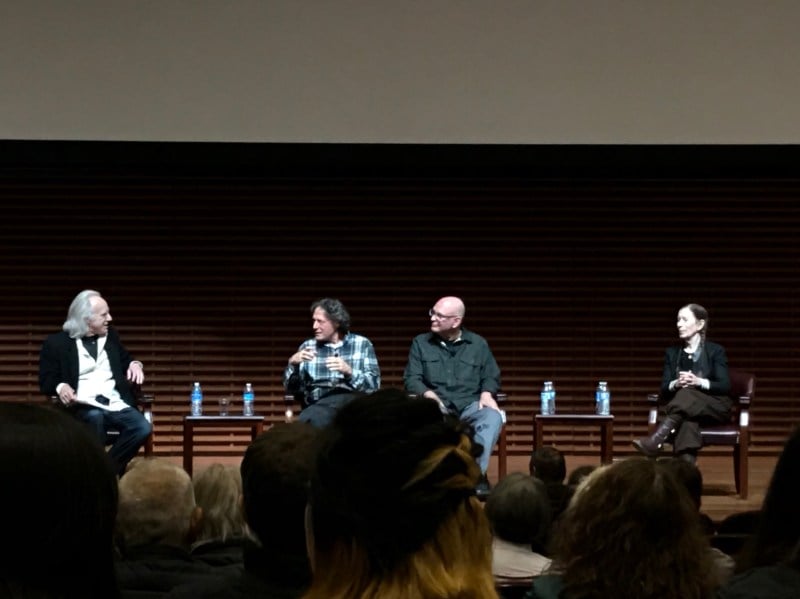Artist and composer Meredith Monk and members of the Vocal Ensemble will perform Monk’s new work “Cellular Songs” this upcoming Saturday at Bing Concert Hall as part of Stanford Live, the university’s performing arts producer. The piece combines images, movement, film and music and was inspired by Monk’s fascination with the cell as a source of life.
“I started thinking about how billions of cells in our body have to cooperate to make us able to function,” Monk said. “And then I started thinking about how that could be a metaphor for society that was really about cooperation rather than competition, that was about generosity rather than selfishness, and was about gentleness rather than violence.”
On Wednesday, Monk participated in a panel discussion with Stanford Forgiveness Projects director Fred Luskin and pathology professor Joseph Lipsick about ideas of life as explored in science and art. The event, called “The Art of Life,” was moderated by Italian literature professor Robert Harrison.
In the panel, Monk likened scientists and artists to “detectives,” describing the similarity of the process as driven by “following clues” and “discovery.”
She described how Siddhartha Mukherjee’s book “The Emperor of All Maladies: A Biography of Cancer” led her to make connections between the songs she was working on and cellular behavior. During the event, she also showed a short excerpt of the end of “Cellular Songs.”
Monk described her creative process, noting that scoring on paper is “usually an after-result.” Instead, she prefers to “work more viscerally.”
“In a way, I think of it more like sculpting or painting,” she said. “In rehearsal itself, working with these human beings, I’m making these forms so it’s very organic and visceral.”
“The voice is the center of my work. It’s like the river that goes through my life, but I have little by little letting the instruments sing,” Monk added.
Monk also emphasized the need for a sense of wonder in modern times, pointing towards art and live performance in particular as a means of providing the sense of “wonder and magic and mystery.”
“I think with the screen time that everybody’s spending, and the lack of touch, the live performance provides a sense of touch, because all of us are in the same room at the same time,” Monk said. “We are very vulnerable. And the energy, I always think of the energy as a kind of infinity sign between us, it sweeps around the audience and comes back to us. We are experiencing something together.”
Contact Michelle Leung at mleung2 ‘at’ stanford.edu.
